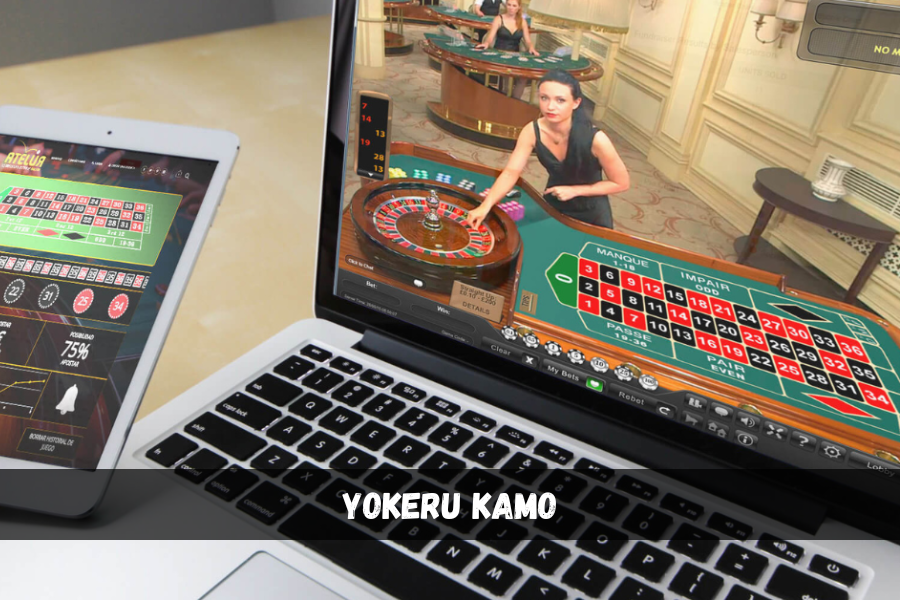Introduction to Yokeru Kamo
The term “Yokeru Kamo” has interested many across various fields, from cultural studies to language lovers. It is a Japanese phrase that carries significant cultural and practical implications. Breaking down the phrase, “Yokeru” generally means “to avoid” or “to dodge,” while “Kamo” can translate to “perhaps” or “maybe.” Combined, “Yokeru Kamo” could imply “might escape” or “could dodge,” depending on the context.
Historical Context
Understanding “Yokeru Kamo” requires exploration into its historical roots. In Japanese culture, the concept of avoidance has been complicate linked with social balance. Historically, Japanese society places huge value on maintaining peace and avoiding direct struggle. This cultural backdrop helps explain why phrases like “Yokeru Kamo” are not just communicative expressions but reflections of societal standards.
For example, during the Edo period (1603-1868), avoiding direct conflict was a common practice among samurai and merchants alike. The idea was not about fearfulness but strategic handling to maintain honor and stability. “Yokeru Kamo” fits within this tradition, emphasizing the carefulness of ducking potential conflicts.
Practical Applications
1. In Martial Arts:
In martial arts, “Yokeru Kamo” is more than just a phrase; it’s a principle. exponents of disciplines like Aikido and Judo often employ strategies that involve dodging or redirecting an opponent’s energy. The phrase underscores the importance of agility and prospect.
2. In Business:
In the world, “Yokeru Kamo” finds relevance in risk management. Businesses often need to “dodge” financial pitfalls or strategic errors. For instance, during economic downturns, companies that quickly adapt to changing conditions can be seen as practicing “Yokeru Kamo” at an organizational level.
3. In Daily Life:
On a personal level, “Yokeru Kamo” applies to everyday decision-making. Whether it’s avoiding traffic by choosing an alternative route or sidestepping unnecessary arguments, the phrase captures the essence of intelligent living.
Case Study: Yokeru Kamo in Crisis Management
Consider the case of a Japanese automobile company facing a massive recall due to defective parts. The company had two choices: confront the issue head-on with aggressive PR campaigns or subtly manage the situation to avoid panic. They chose the latter, employing a “Yokeru Kamo” strategy. By quietly addressing the defects, issuing targeted recalls, and maintaining open but low-key communication, they managed to preserve brand integrity without rising the crisis.
Linguistic Nuances
Understanding “Yokeru Kamo” also involves appreciating its linguistic subtleties. In Japanese, context heavily influences meaning. “Kamo” adds a layer of uncertainty, making the phrase flexible. It can suggest possibility without committing to a definite outcome. This subtlety is particularly useful in conversations where one wants to remain non-committal yet considerate.
For example:
- Casual Setting: “Ashita ame ga furu kamo” (Tomorrow it might rain).
- Business Meeting: “Kono purojekuto wa chotto muzukashii kamo” (This project might be a bit difficult).
In both examples, “kamo” softens the statement, making it less assertive and more conceptual.
Psychological Insights
From a psychological perspective, “Yokeru Kamo” aligns with reasonable strategies like risk assessment and avoidance behavior. People naturally tend to avoid situations noticed as threatening. This is not merely about fear but about optimizing outcomes. For instance, someone might avoid a stressful meeting if they believe their presence won’t contribute positively.
Research in behavioral economics also supports this. The concept of “loss aversion,” where individuals prefer avoiding losses over acquiring equivalent gains, mirrors the essence of “Yokeru Kamo.” It’s not about missing opportunities but about making calculated decisions to minimize negative outcomes.
Comparative Analysis
When comparing “Yokeru Kamo” to similar concepts in other cultures, interesting parallels emerge:
Western Context: The phrase “better safe than sorry” captures a similar feeling, emphasizing caution and foresight.
Chinese Culture: The concept of “Wei Ji” (crisis and opportunity) suggests that avoiding danger can sometimes lead to new opportunities.
These comparisons highlight that while the expression is uniquely Japanese, its core idea is universally relatable.
Impact on Modern Japanese Society
In contemporary Japan, “Yokeru Kamo” continues to influence various aspects of life:
Education: Teachers often encourage students to consider “Yokeru Kamo” strategies when tackling complex problems, promoting critical thinking.
Technology: In cybersecurity, companies adopt proactive measures to “avoid” potential threats, embodying the “Yokeru Kamo” mindset.
Public Health: During the COVID-19 pandemic, the concept was evident in social distancing measures designed to “avoid” virus transmission.
The Philosophy Behind Yokeru Kamo
At its core, “Yokeru Kamo” is more than just a strategy; it’s a philosophy of life. It teaches the value of prospect, flexibility, and prudence. This doesn’t mean living in fear but embracing a mindset that prioritizes thoughtful action over impulsive reactions.
Key Philosophical Lessons:
- Flexibility: Life is unstable. The ability to adapt is crucial.
- Mindfulness: Being aware of potential risks allows for better decision-making.
- Balance: It’s about knowing when to engage and when to step back.
You Might Also Like: Where Does Kirk Herbstreit Live? An Inside Look at the Life of the College Football Analyst
Conclusion
While “Yokeru Kamo” might seem like a simple phrase, its implications are vast and multifaceted. From historical traditions to modern applications, it outlines a way of thinking that values caution, adaptability, and strategic foresight. Whether in business, personal life, or societal norms, the principles behind “Yokeru Kamo” offer valuable lessons for navigating the complexities of the modern world.
Stay in the know with the latest news and updates on LET MAGAZINE Best Regards!



